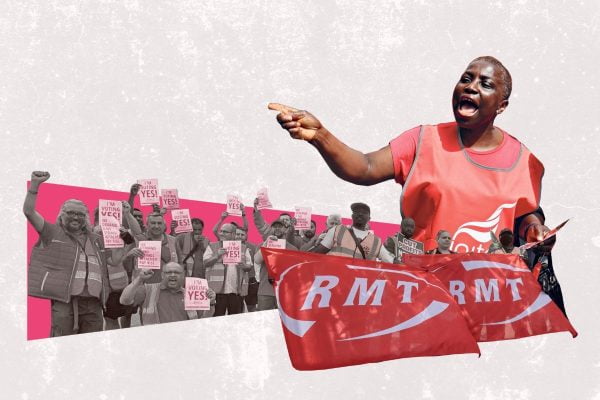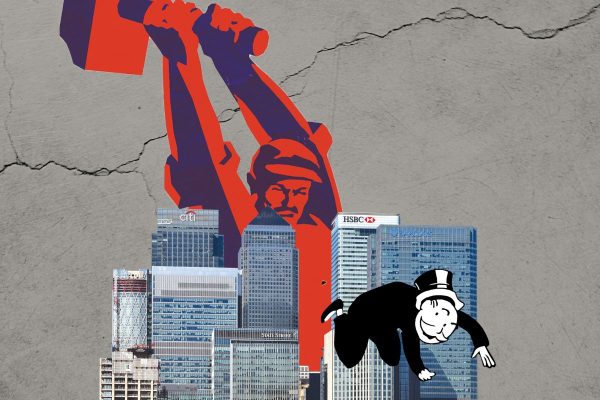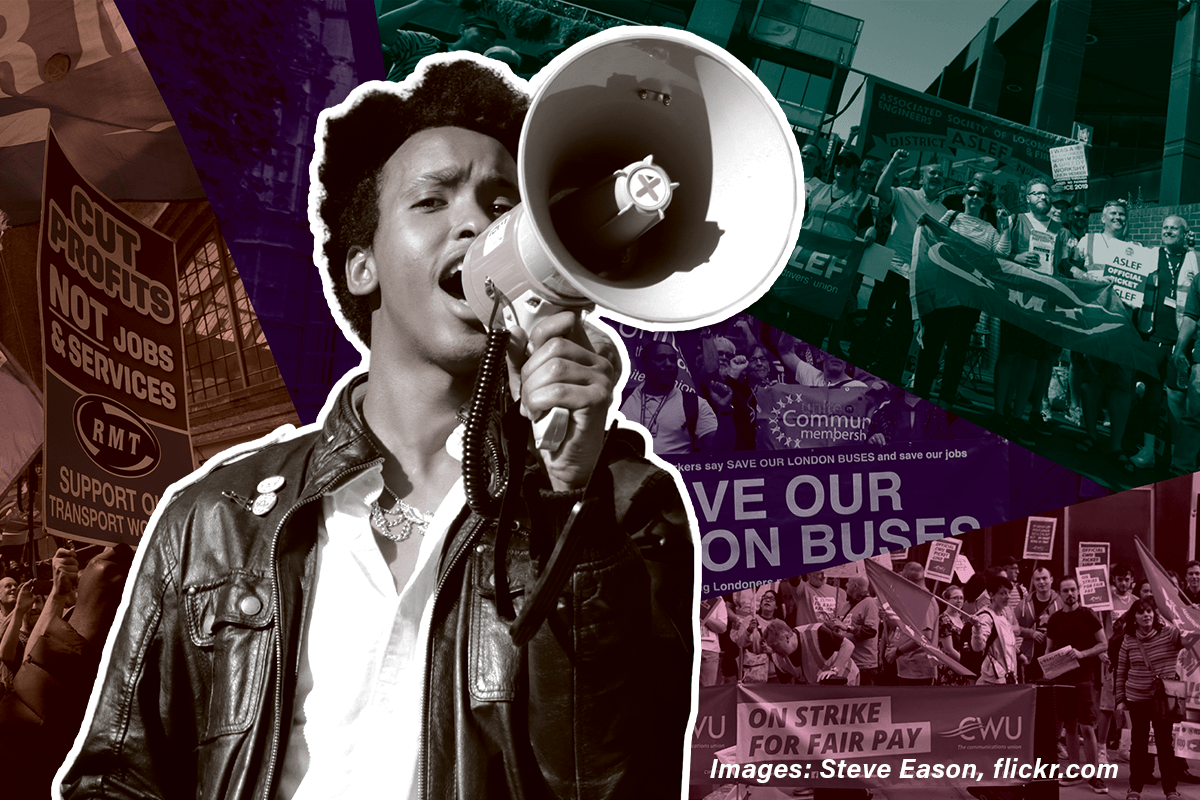This year’s TUC Congress, held this week in Liverpool, was an important landmark. For one, it comes at the end of a strike wave that has rocked Britain over the past year, but which has now entered an ebb.
In that time, the trade union movement has learnt a number of lessons: from just how brutal the Tories will be in defending their system; to the enormous reserves of energy and enthusiasm that exists amongst a new generation of workers for taking action.
Above all, this year-long upturn in strikes has hammered home that sustained, militant action – not just a few days here or there – is required for workers to win. There is therefore a crying need for far greater unity and coordinated action in the battles to come.
This TUC Congress was by no means a chance for the movement to quietly reflect, as if at the end of a long period of struggle.
Although we are in a temporary ebb, this is really a calm before greater storms. The movement must therefore not despair, but instead prepare for battle.
Non-compliance

And preparations are already underway. Nowhere was this more clear than in the passing of a composited motion on the Tory government’s Minimum Service Levels (MSL) Bill.
This Congress motion commits the TUC to a defiant strategy of non-compliance and non-cooperation with MSLs, including taking industrial action to defeat this repressive new legislation. This is the correct response.
Britain already has some of the most restrictive trade union laws in Europe. But this bill threatens to restrict workers’ rights even further, by effectively taking the right to strike away from thousands of workers. Many strikes, particularly in the public sector, would be defanged by these laws, to the point of being tokenistic and impotent.
The MSL bill should be seen as a watershed moment for the trade union movement. Having already received Royal Assent back in July, all that is required now is for a consultation period before the regulations and details of how the law is set to be enforced and implemented are revealed.
A significant class battle could therefore break out in the coming months – between the organised working class on one side, and the Tories and their big business backers on the other.
As RMT general secretary Mick Lynch stated, when speaking on the motion: “Meek compliance with this legislation is the road to oblivion.”
“People remember Tolpuddle, the Chartists, 1926, and miners’ strike,” Lynch continued, to great applause, “not because they gave in, but because they fought back.”
Courts and concessions
The TUC is already reporting the government to the International Labour Organisation over the MSL bill. But this international watchdog cannot be relied upon anymore than the British legal system can.
Recently, the High Court ruled in favour of the unions, meaning now that agency workers cannot lawfully be used as scab labour during strikes.
As a result of this decision, there may understandably be some illusions in the courts.
Firstly, however, it should be mentioned that this is only a temporary win. The government can still appeal, or reintroduce the regulations after a further consultation.
In any case, in reality, it is more likely that this court case was won due to the industrial strength that the unions have demonstrated over the last year.
The High Court, Parliament, Whitehall – none of the institutions of the capitalist state are immune from the stresses of the class struggle.
Indeed, under the pressure of a reactivated union movement, all sorts of concessions can potentially be achieved. But that militancy needs to be serious and sustained to defeat the MSL and all other anti-union laws.
Militant action
The MSL bill poses a serious threat to the trade union movement. The passing of this Congress motion is therefore to be welcomed.
That this composite passed, however, does not necessarily mean that such a strategy will come about. As the old proverb goes, fine words butter no parsnips.

Indeed, last year’s TUC Congress committed affiliated unions to coordinate action across the movement in the struggle over pay and conditions, involving united strikes alongside demonstrations and rallies, both regionally and nationally.
In reality, however, only a few unions took up this call. And in the end, only a couple of days of serious coordinated action were achieved, before the movement eventually splintered, as the Tories offered a carrot to some, and threatened the stick to others.
What is required, then, is not simply for motions to be passed, but for the unions to organise militant mass action. The trade union leaders must mobilise workers to smash the bosses’ laws.
Broad Lefts
In this respect, a significant fringe meeting also took place at this year’s TUC Congress.
A launch rally was held to bring together all the Broad Lefts of the major unions. This involved the NEU Left, PCS Left Unity, RMT Broad Left, Time for Real Change in Unison, and Unite United Left.
This grouping, the ‘Organising Committee of Union Lefts’ (OCUL), is calling for the left of the trade union movement to work together to “win real-terms wage rises, restore social benefits, and rebuild public services” and to “fight job cuts, casualisation, outsourcing, and worsening of terms and conditions”.
Furthermore, OCUL has underlined the need “for unity to defeat the Strikes (Minimum Service Levels) Act, repeal all anti-union laws, and assert our fundamental democratic right and freedom to organise, bargain, strike, and protest”.
The purpose of this meeting in Liverpool was primarily to discuss how the left can work together to achieve these aims and unite to take further militant action – especially since the trade unions will likely soon be facing a Labour government.
What was most important about this event, however, is that multiple speakers recognised that, regardless of the promises Starmer’s Labour is currently making around workers’ rights, only a powerful and united trade union movement will be able to ensure that any such reforms are delivered.
Fran Heathcote of PCS Left Unity, in particular, warned that there are “already signs there are those in our movement who are prepared to reach an accommodation” with a Starmer government.
In reality, she correctly highlighted, a Starmer administration would be no different to the present Tory one.
It is welcome that many leading figures in the movement recognise the looming confrontation between the unions and a future big business Labour government – and that the left must organise now in advance of such struggles.
Empty promises

‘Sir’ Starmer too has clearly recognised this will be the case, as evidenced by the fact that it was Deputy Leader Angela Rayner who addressed the Congress on behalf of the Labour Party.
While Starmer is rightly seen as a Blairite backstabber and a champion of the establishment, there are more illusions on the left around Rayner and her credentials. Hence the party sending in the Deputy Leader to speak to the trade unions about Labour’s pledges on workers’ rights, as a wolf in sheep’s clothing.
Rayner promised that a Labour government will introduce: “basic rights” from day one of employment; “an end to fire and rehire”; “a proper living wage that people can actually live on”; “more council homes”; and “an economy that works for working people”.
If carried through, under pressure from below, these reforms would all mark an important gain for workers.
Such words are cheap, however, coming from a leading member of Starmer’s Labour Party. These careerists and charlatans will happily say one thing and then do another, as has been repeatedly proven.
It is more than likely, therefore, that these “ironclad commitments” are a load of hot air. Like other empty promises before them, these latest assurances too will quickly be forgotten or jettisoned down the line, when Starmer is in Downing Street, as the crisis of capitalism deepens and the bosses demand further attacks on the working class.
Alternatively, a Starmer government might bring in some superficial changes regarding workers’ rights and anti-union laws, as a left cover whilst they push through cuts and austerity on behalf of the capitalists.
Either way, the lesson is clear. Workers can only trust in their own strength. Instead of placing any faith or hopes in Starmer’s Labour, the trade union movement must organise and fight. Huge strikes and bitter struggles are on the order of the day.
Class battles
What we can expect for certain then, is that the period ahead will see titanic class battles in Britain – even bigger and more intense than the ones of the past year.
We must have a sense of proportion and perspective. The strike wave of 2022-23 saw the highest number of working days lost to strike action since 1989. But we have some way to go to reach the levels of the 1970s. That will come, however, as night follows day.
The vital question, just as in the ‘70s, is one of leadership – whether there will be a revolutionary leadership at the head of the working class in time, ready and capable of guiding the movement to victory.
The IMT is striving to answer this question in practice: building up our forces so that a genuine, revolutionary communist party can play such a role, and help put an end to capitalism once and for all.






